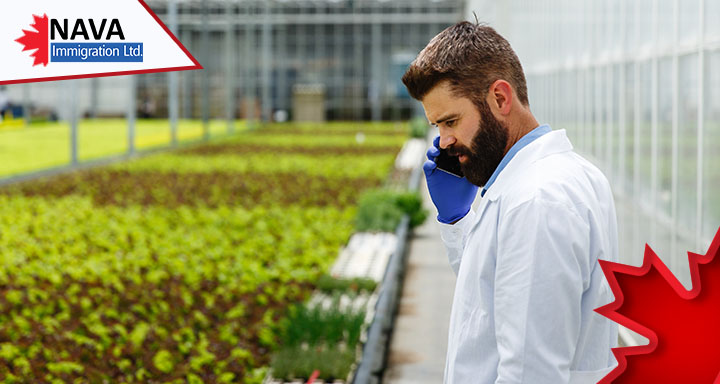IRCC declared the Agri-Food Immigration Pilot’s extension.
Recently, IRCC declared the extension of the Agri-Food Immigration Pilot. In addition, the annual occupational limits are also removed for the candidates of the program.
The government established the Agri-Food Immigration Pilot to encourage skilled agricultural workers in the agricultural and food sector to shift to the Canadian PRs.
Sean Fraser, the immigration minister, announced that the Agri-food Pilot will now be active until May 14, 2025.
Furthermore, the minister also mentioned the removal of the yearly occupational limits.
As per the IRCC, the removal of the occupational caps will be a great opportunity for applicants, and it will allow more eligible candidates to apply.
The Agri-Food Immigration Pilot program
Initially, the set deadline for the application was May 14, 2023, which IRCC now extends to May 14, 2025.
IRCC also announced that it would introduce new changes to the pilot by the end of this year. The following are the stages in which the department will introduce the changes:
- Irrespective of the job skill level of the pilot program candidate, the accessibility of the open work permit is increasing for the family members of candidates
- In place of demanding employers’ reference letters, IRCC is allowing unions to verify the work experience of the candidates.
- The applicants residing in Canada will have two options, either they have to satisfy the job requirements (including the median wage requirement of the offer) or the educational requirements ( including the ECA verification)
- The pilot program will initiate allowing vulnerable workers with work experience obtained under an open work permit. This will create an opportunity for more workers to qualify.
In Canada, the Agri-Food Immigration Pilot was started in 2020. The aim of the pilot was to lower the shortage of workers in various fields, including meat processing, livestock raising, and mushroom and greenhouse production.
As per Canada’s latest job vacancy data, over 243,000 individuals were hired in sectors such as Hunting, Agriculture, Fishing, and Forestry. Additionally, over 14,000 job positions were vacant.
Notably, the Agri-food industry experienced difficult times during the pandemic, which led to supply chain delays, market fluctuations, and even plant closures.
The eligible occupations for the Pilot Program
There are various occupations and industries that are eligible under the pilot program.
1. Meat Product Manufacturing:
- Retail butchers
- Industrial butchers
- Farm managers
- Specialized livestock workers
- Food Processing Workers
2. Nursery, Greenhouse, floriculture, and mushroom productions
- General farm workers
- Harvesting laborers
- Farm supervisors
- Specialized livestock workers
3. Animal production except for aquaculture:
- Farm supervisors
- Specialized livestock workers
- General farm workers
Candidate eligibility for the Pilot Program
The following are the additional requirements for the pilot program’s candidates.
- Candidate must have a full-time non-seasonal Canadian work experience of a whole year in one of the eligible occupations under the Temporary Foreign Worker Program.
- Candidate must have a Canadian Language Benchmark level 4 language such as English or French.
- Candidate must have the international equivalent degree of a high school level or above it.
- Candidate must have an unspecified job offer at or above the general wage for full-time, non-seasonal work in Canada outside of Quebec.
Pilot and the Meat processing sector
Employers in the meat processing industry who want to utilize the pilot will be given a 2-year Labour Market Impact Assessment.
The plan must suggest the strategy of the employer to support the temporary foreign worker in receiving the Canadian PR. IRCC further noted that to ensure the protection of the labor market and migrant workers, the meat processors that belong to a union must submit a letter of support from their union, whereas the-union meat processors must satisfy the additional requirements.





